Rashah McChesney
Chilkat Valley News
Kroschel, staff, say close to 20 animals missing after raid on wildlife center
Fish and Game admits leaving some animals behind, but no firm number
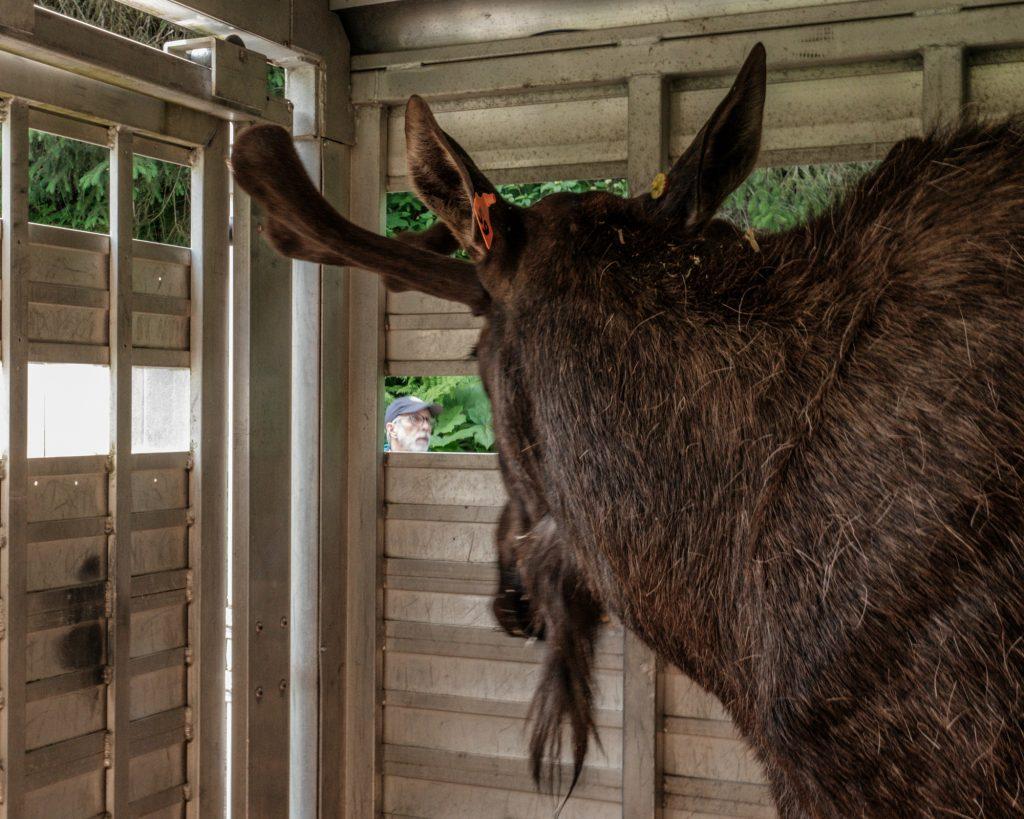
An abandoned mink, a wolf who died during a roundup, and a snowy owl who was euthanized after transport were among the dozens of animals caught in the middle of a years-long dispute over the conditions at a Mosquito Lake wildlife facility.
Staff at the 60-acre Kroschel Wildlife Center estimate at least 20 animals are missing after Alaska State Troopers and Department of Fish and Game staff raided the facility Thursday, seizing animals and looking for evidence of criminal animal cruelty.
It’s difficult to verify the exact number of animals in the facility from a single source. Some are privately owned, some were placed there by the state and some are regulated by the state regardless of where they came from. Owner Steve Kroschel listed 54 on his most recent application to Fish and Game for an educational permit.
In a warrant left tucked into owner Steve Kroschel’s mailbox, Alaska State Troopers reported taking 37 animals, including a brown bear, moose, porcupine, three wolves, a handful of foxes, a red-tailed hawk and three snowy owls. Fish and Game reported having taken 39 animals.
But Kroschel and employee Patrick McMullen say the facility was home to more than 60 animals and they question what happened to the remaining ones, including several foxes and a number of weasels. As of Wednesday night, Kroschel said in addition to the mink, he’d found a snowy owl, a few foxes, and two pine martens that had been left behind.
Fish and Game staff have not answered questions about the missing animals. Wildlife Division assistant director Mark Burch – who has been the primary point of contact in the department about Kroschel’s facility – routed questions about the discrepancy “up the chain of command.”
Two days later, division director Ryan Scott – who led the operation to seize the animals — pushed questions to spokesperson Shannon Mason, who said the department would be putting out a prepared statement.
In that statement, released late Tuesday evening, Fish and Game notes that some animals were left behind at the center, but did not clarify how many or resolve discrepancies between what they said they seized, and what Kroschel said was actually at the facility.
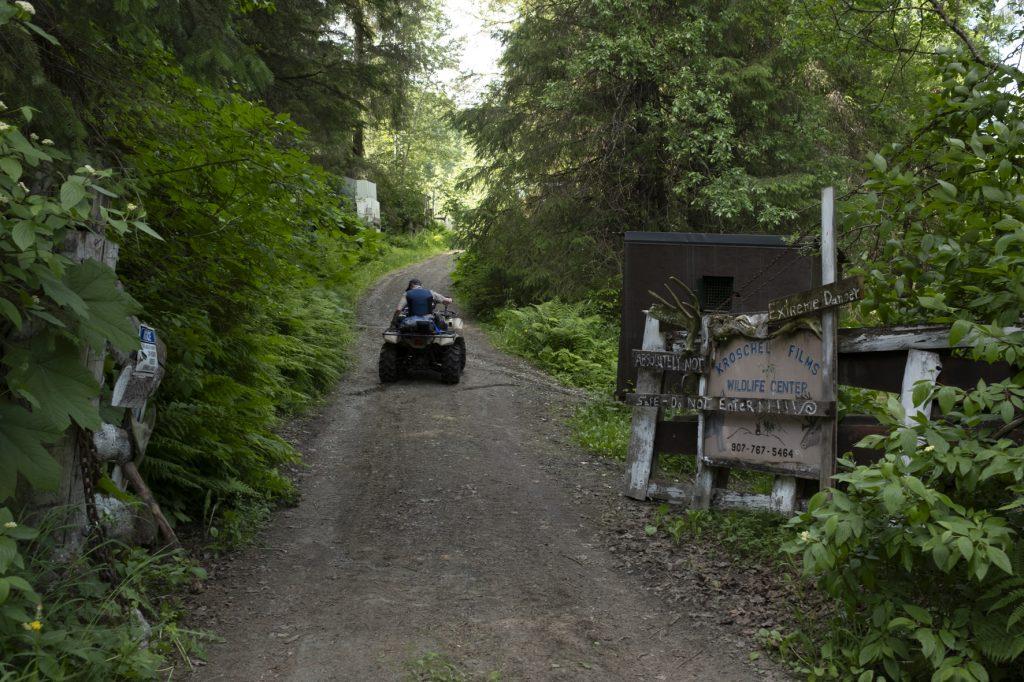
“The department knows some animals remain at the Kroschel Wildlife Center. This was anticipated prior to action on June 27, 2025,” according to the release. “We are working on reconciling the number of animals that remain and securing a path for these animals.”
According to the warrant, troopers were looking for evidence of cruelty to animals, which can result in charges ranging in seriousness from class A misdemeanors to class C felonies. Each animal that is subject to that crime is considered a separate offense, according to the statute.
If convicted, Kroschel has to forfeit animals to the state, could be prohibited from possessing them for up to a decade, and could be required to reimburse the state or other custodian of the animals for the costs of providing shelter, veterinary attention or medical treatment, according to the statute.
What led up to the raid?
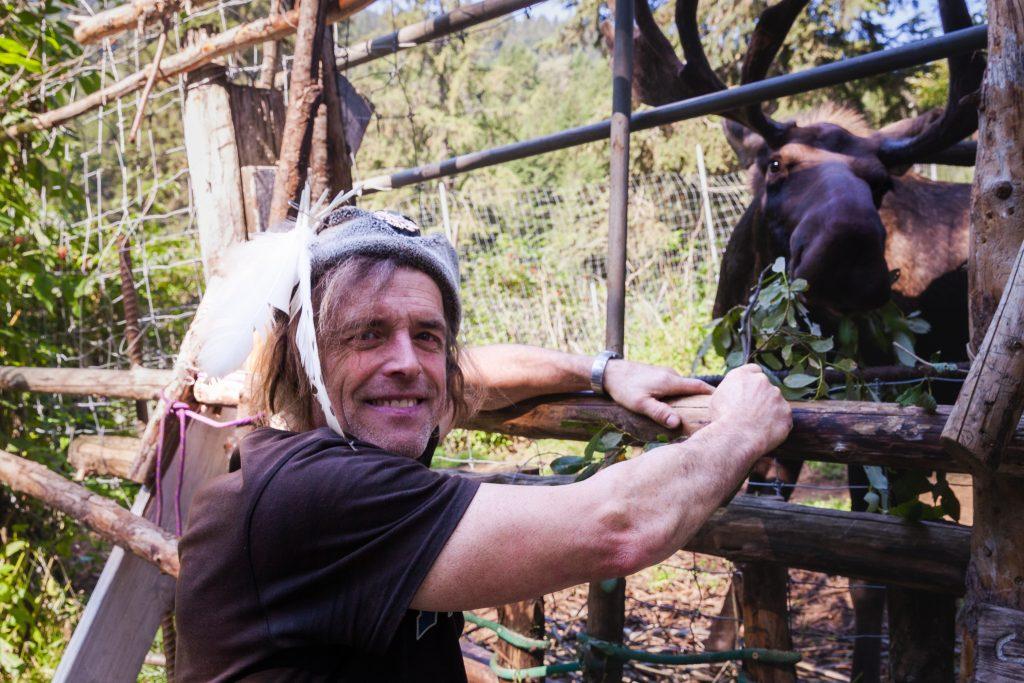
Kroschel lost his USDA license to open to the public in 2024.
Among other things, a USDA inspector cited him for a sag in his brown bear enclosure fence, rodent droppings and old food near his food supplies and buildups of old bedding, debris, fecal matter and food waste in animal pens.
He lost his state permit shortly thereafter. Although he regained the USDA license in early March after months of appeals, he has not been able to get his Fish and Game permit reinstated.
Instead, there has been a months-long back-and-forth with Fish and Game staff over his state educational permit. Commissioner Doug Vincent-Lang sent Kroschel a letter telling him to correct issues with the application ranging from his veterinary plan of care – which contained out of date information – to the way enclosures were open to the public, to how he was feeding animals and sanitizing their water.
That list came with a June 15 deadline at which time Vincent-Lang said he would not issue a permit for 2025. Kroschel and Anchorage lawyer Michelle Bittner said he responded to all of those requests for more information.
“I sent pages and pages of [supporting] documents,” Kroschel said.
But he and others said the state never scheduled an inspection, or said whether his answers were sufficient. Instead, Vincent-Lang responded June 21 saying the state was still considering Kroschel’s application and “(would) have a decision soon.”
Six days later they raided the facility.
“They were not negotiating in good faith,” Kroschel said.
According to the warrant, wildlife trooper Colin Nemec found evidence that 26 animals had died at the facility since 2020, including three moose, three wolves, a snowy owl, several lynx, and mink.
It’s a figure that Kroschel strongly disputes.
“They got that wrong, they’re saying there were 26 animal deaths – there’s not even been 26 animal deaths since I started in 2001,” he said.
The warrant also cites the opinions of two veterinarians who say the conditions the animals were being kept in did not meet minimum standards of care, including “abundant animal feces in enclosures, dirty water bowls, small cages with minimal enrichment for animals.”
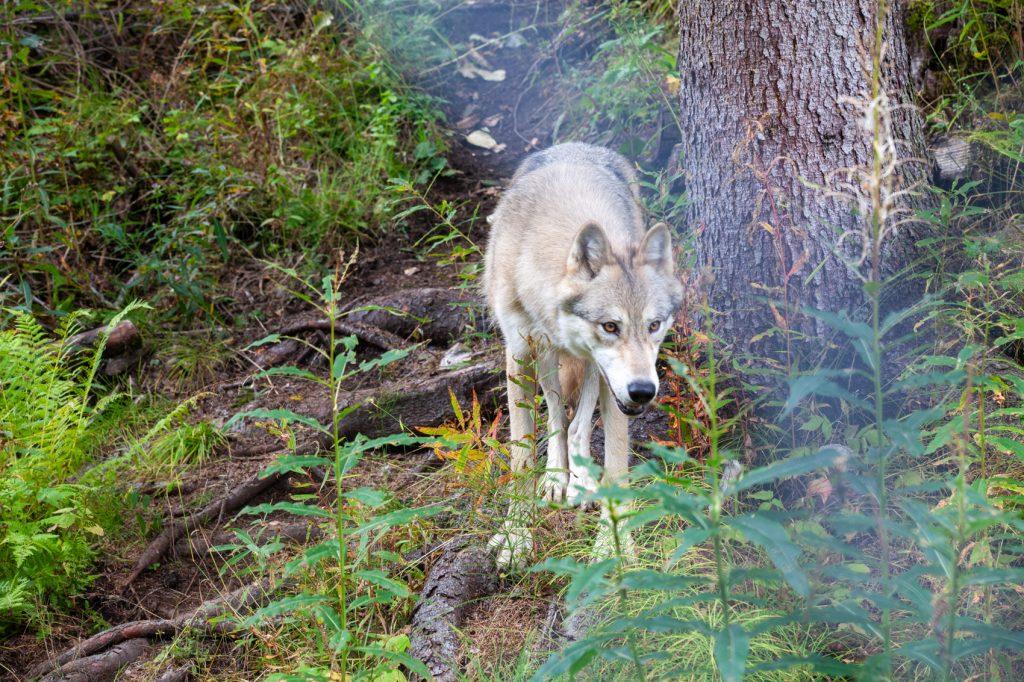
But retired wildlife trooper Patrick McMullen, who is currently working with Kroschel, said the animals were well-cared for.
McMullen is the primary caretaker for the facility’s wolves, but he also feeds and waters the other animals in Kroschel’s absence.
He said the state had ripped them from a loving home.
“If they say anything about [Kroschel] being neglectful and cruel, that’s complete nonsense,” he said. “There was not a single animal in that park that was malnourished, abused, neglected, hungry, cold, wet, scared or unsafe.”
But falconer and photographer Mario Benassi said he has been warning that regulators would shut the facility down for years. Benassi said he first started working with Kroschel at the Mosquito Lake facility in 2004.
Benassi said what Kroschel built was unique.
“We gave people an up-close, personal encounter with wild animals,” he said of the early years when the facility was operating. “I would let everyone pet the fox. Everybody on the tour got to pet a fox and we would take it out and hold it.”
That kind of interactive wildlife experience – where people could see a bird of prey up close, a wolf coming down the trail on a chain – is the reason Benassi believes the facility is beloved by former visitors.
“It was a world-class show, no question,” he said. “It will never be duplicated again. You got to feed a moose for god’s sakes. Where else in the world is anyone going to let you feed a moose?”
But behind the scenes, Benassi said things were spread too far out; reaching enclosures to get food and water to the animals was increasingly difficult.
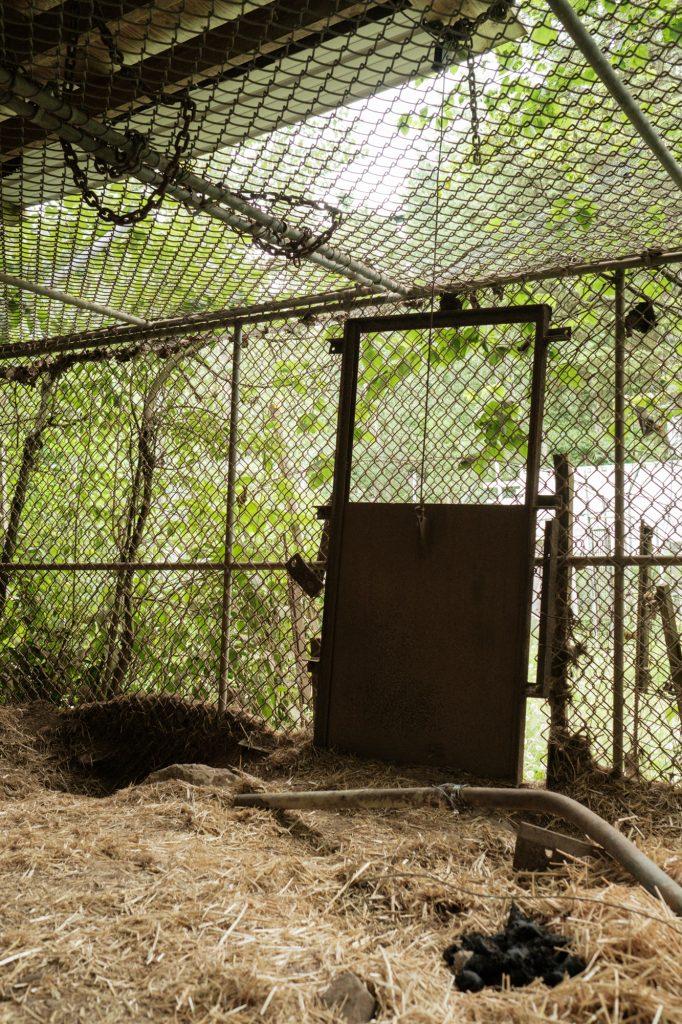
“The rule is: standing water in each facility 24-hours-a-day, period,” Benassi said. “That is very difficult to attain in a facility like that. Even if you water them in the day, the water freezes solid as a rock at night unless you’ve got some kind of circulator or electric heater – but then having electricity to each facility is – mind you these were pens that were spread out over 60 acres without perimeter fences.”
Benassi said he’s been working in professional zoo-type settings on and off since he was a teenager. He and Kroschel frequently clashed about the management of the grounds and how animals would be kept in the facility.
Benassi said it’s expensive to keep animals the way that state and federal regulators want to see them kept. The money from thousands of cruise ship visitors coming through each season was good. Last year, when Kroschel’s facility was first shut down by the USDA, he estimated he could make about $5,000 a day doing tours while feeding and caring for the animals could cost up to $15,000 a month.
From his perspective, Benassi said the funds should have been spent upgrading animal facilities and making it easier to care for them.
“I would start the tour by saying ‘Well, I don’t know where you think you’ve come to, but all the architecture here is real Alaskan hillbilly architecture,” he said.
But, he also said the state didn’t make the job any easier.
“The state ties your hands. [Kroschel] couldn’t sell anything. He couldn’t euthanize anything. If he ended up with five extra foxes, he couldn’t do anything with them and he had to take care of them.”
Ultimately, Benassi said, all of the arguing about how the animals were being kept led to his departure in 2019.
“Steve didn’t listen to me. He would not listen to me about facilities, about the management of the park,” Benassi said.
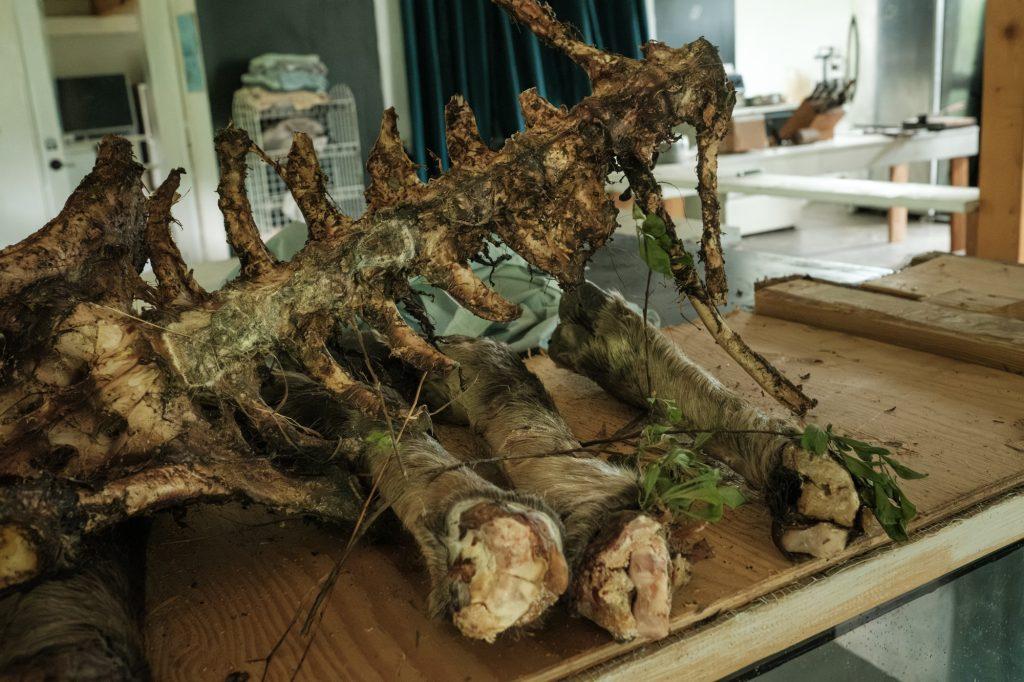
Many people, Kroschel included, have speculated what has changed, given that he operated for decades without running into serious issues with inspectors from the state and federal government.
Benassi said he thinks times have changed and things that used to be acceptable animal husbandry practice are now frowned upon.
“[The state] didn’t have a zoo policy when [Kroschel] moved here,” Benassi said. “They’ve been kind of operating by the seat of their pants for years and when they finally developed a policy, they decided he was outside of it.”
When he heard the state raided the facility last week, Benassi said it broke his heart. From his perspective, the animals got caught in the middle of the state and Kroschel.
“I know they’re going to kill these animals,” he said. “They euthanize everything. They’re not concerned.”
The raid
There was no one at the facility with the animals when law enforcement and game officials arrived mid-morning Thursday.
“I’d been out there the whole day and the night. I go out there and I walk the wolves all night,” McMullen said. “I had actually just left there probably 45 minutes or so before they showed up.”
Kroschel said he was on the highway headed back to the Mosquito Lake and got stuck in some road construction.
By the time he arrived, Kroschel said a mass of law enforcement officers and others had already gotten into the property. Officers and state officials were driving around on four-wheelers and had stainless steel crates for animals
Kroschel said he told the person driving him home to keep on driving, turned his phone camera on and recorded the group. As they passed a second, rear entrance to his facility, he said he saw several trooper trucks.
“It’s like they were waiting for the “Unabomber,” Ted Kaczynski or something,” he said.
Kroschel was dropped off at a nearby property he owns. He left his phone behind and returned to his wildlife facility on foot. There, he said, authorities showed him the warrant, which he does not remember reading closely. He said they did not give him a copy and told him he was not allowed on the property while they were serving it.
It’s not clear which state agency has legal possession of the animals currently.
Both state and wildlife troopers at Kroschel’s property and agency spokesperson Austin McDaniel tried to draw a distinction between what state troopers were doing and what Fish and Game staff were doing during Thursday’s raid. They framed it as simultaneous, but separate operations.
During the raid, trooper spokesperson Tess Williams and other Department of Public Safety employees said they were supporting Fish and Game while simultaneously barring access to the property by Kroschel or journalists from the Chilkat Valley News because state law allows law enforcement to control access to an area while serving a warrant.
“This is Fish & Game’s thing. We are assisting,” Williams said. “Fish and Game is leading.”
In a written statement, McDaniel said Friday that troopers were executing a search warrant in an ongoing criminal investigation while staff from Fish and Game were “taking regulatory action on the property.”
But, in a media release, Fish and Game said staff were assisting troopers by securing and relocating game animals from the facility.
And, according to the warrant, the troopers were seizing the animals and then “immediately turning them over to Fish and Game.”
When asked about the apparent contradiction between his statement and what is written in the warrant, McDaniel said a warrant is technically not considered a public document until it is filed in connection with charges.
“I cannot comment on the contents of a search warrant until the search warrant is publicly available,” McDaniel wrote in an email.
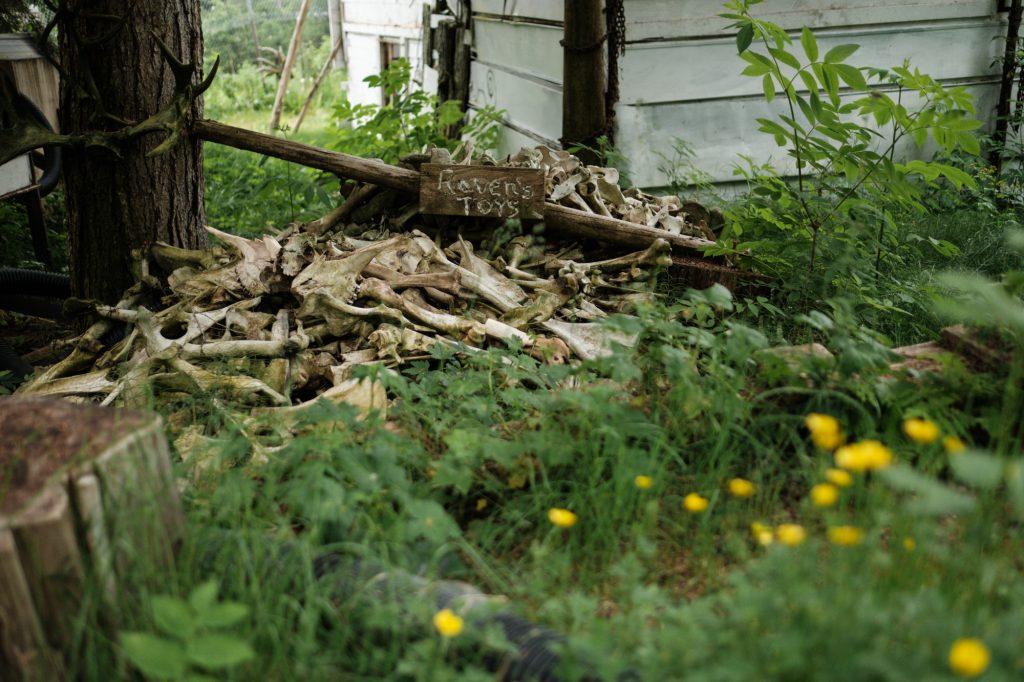
Correction: An earlier version of this story misidentified a mink as a weasel.

Rashah McChesney — Chilkat Valley News
Rashah McChesney is a multimedia journalist and editor who has reported and edited newsrooms from the Deep South to the Midwest to Alaska. For the past decade, she has worked in collaborative news as the Deputy Editor for the Gulf States Newsroom and a reporter for Alaska’s Energy Desk in Juneau. Currently, she’s editing a project with KYUK and ProPublica and in 2024, she bought the weekly Chilkat Valley News in Southeast Alaska where she is focused on building a sustainable local newsroom.
